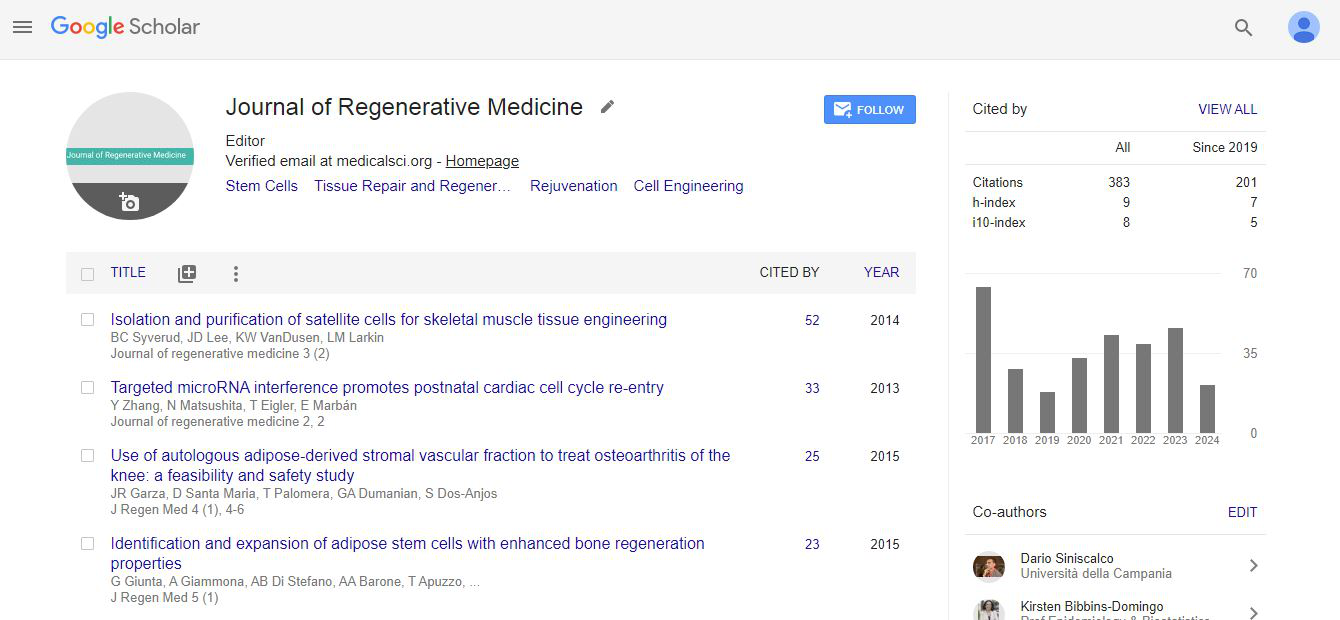Pluripotent stem cell-based therapy for Parkinson’s disease
Xianmin Zeng
XCell Science Inc., USA
: J Regen Med
Abstract
For cell-based therapy to treat Parkinson’s disease (PD), we have developed a Good Manufacturing Practice (GMP)-compatible process for generating authentic midbrain (A9/A10) dopaminergic neurons using defined media from either human embryonic stem cells (ESC) or induced pluripotent stem cells (iPSC). We have identified the optimal time point at which dopaminergic neurons can be frozen, shipped and thawed without compromising their viability and ability to mature in vivo after transplantation.We have also performed IND-enabling preclinical efficacy and safety studies using cells manufactured by this process. Our results show robust long-term survival of transplanted dopaminergic neurons and functional recovery at 6 months post transplantation in the 6-hydroxydopamine (6-OHDA)-lesioned rat PD model. To optimize the transplantation process we have helped develop and test a surgical delivery catheter that can be integrated with an US Food and Drug Administration (FDA)–approved iMRI skull-mounted aiming device and targeting software. We have demonstrated biocompatibility of the cells with the device and successfully delivered with iMRI guidance into swine models. In summary, 1) We have access to a clinical-grade ESC and iPSC line as well as their matched research grade differentiated cells; 2) We have identified a manufacturing site and have access to the DMF; 3) We have performed preclinical studies with cells manufactured by the GMP-compatible process we have developed and 4) We have coordinated with clinicians on developing a delivery procedure and a surgical trial design.
Biography
Xianmin Zeng is a leading stem cell biologist with expertise in neural development of human ESC/iPSC. One of her research focuses is to study neural/neuronal development in human and to model neurodegenerative diseases, with a focus on Parkinson’s disease, using patient-specific and engineered isogenic iPSC lines. She has developed scalable processes of generating functional CNS cells and PNS cells for cell replacement therapy and screening drugs of neurotoxic and/or neuroprotective effects. She joined the faculty of the Buck Institute in 2005 where she builds the Institute’s Stem Cell Program. She received early tenure in 2009 and has been the Director of North Bay Shared Research Laboratory for Stem Cell and Aging at the Institute since 2008. Email: xzeng@buckinstitute.org
 Spanish
Spanish  Chinese
Chinese  Russian
Russian  German
German  French
French  Japanese
Japanese  Portuguese
Portuguese  Hindi
Hindi 